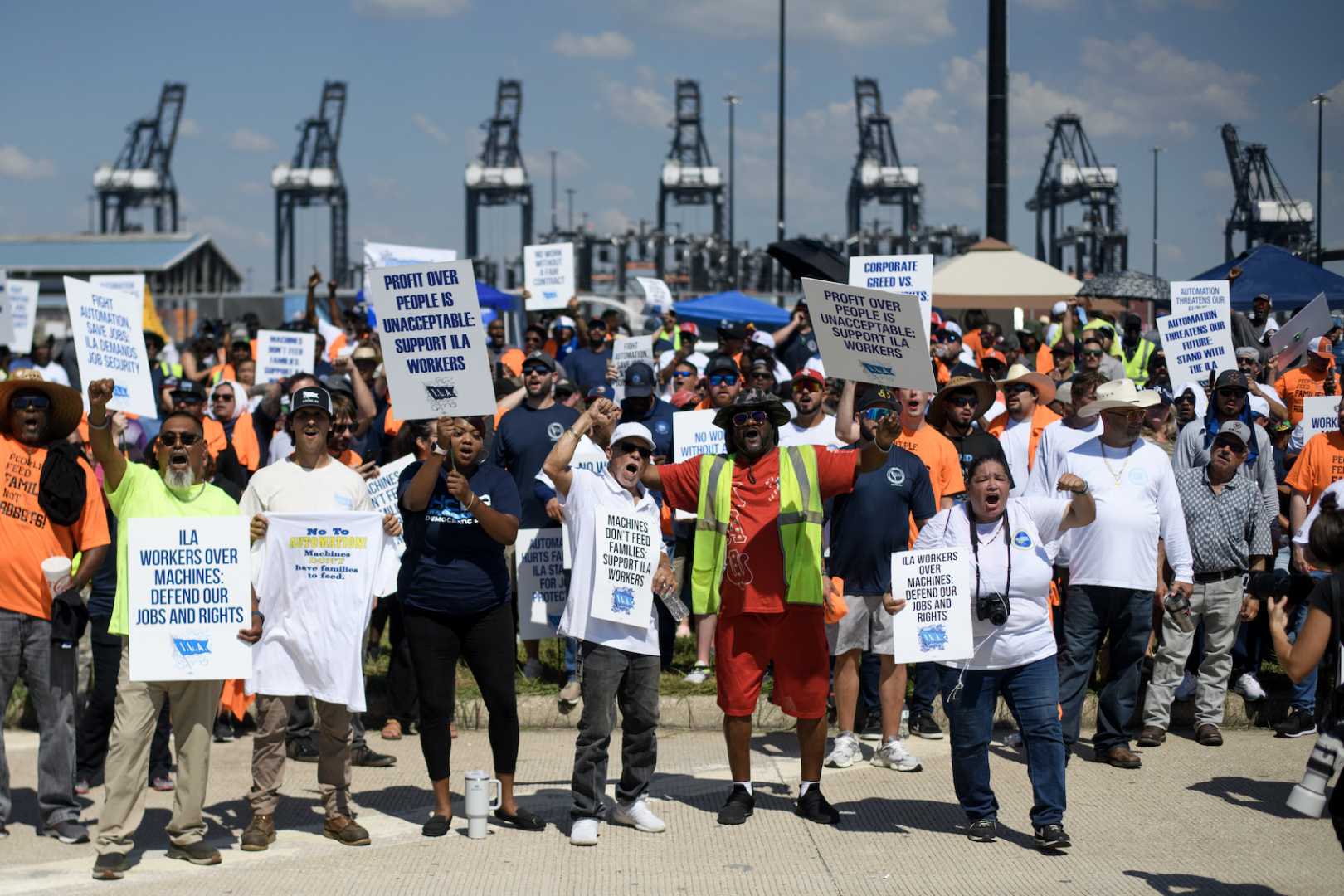News
Dockworkers Strike Ends as Wage Agreement Reached

The recent strike involving tens of thousands of dockworkers on the East and Gulf coasts has concluded following a tentative wage agreement reached between the International Longshoremen’s Association (ILA) and the United States Maritime Alliance (USMX). The agreement includes a significant 62% wage increase over a six-year period, as per sources familiar with the deal who were not authorized to speak publicly. Initially, the union sought a 77% increase, while the employers had proposed nearly 50% in raises.
The two parties have also agreed to extend their existing contract until January 15, 2025, to allow further negotiations on unresolved matters. Among these is the union’s demand for a ban on automation at the ports. This issue is expected to be a focal point in upcoming discussions.
Pressure had been mounting on President Joe Biden from various quarters, including House Republicans and numerous industry groups, to intervene in the matter, citing potential disruptions to supply chains and economic impacts. However, President Biden maintained that the bargaining process should unfold without intervention, stating, “I don’t believe in Taft-Hartley,” referencing the law that allows a temporary cooling-off period in national emergencies. The President lauded the agreement, emphasizing its role in ensuring necessary supplies for hurricane recovery efforts and highlighting the importance of collective bargaining in economic growth.
During the strike, ports from Boston to Houston were affected, where more than half of the United States’ cargo containers are typically handled. Over $2 billion worth of goods pass through these ports daily, including crucial supply items such as chemicals, clothing, and food products. The freight-tracking company Vizion reported significant backlogs, with many ships waiting offshore to unload their cargo. Although the strike has ended, it is expected to take several days to clear the accumulated congestion.
The Retail Industry Leaders Association and other economic stakeholders expressed relief over the resolution, with statements emphasizing the importance of avoiding further disruptions. “Without the specter of disruption looming, the U.S. economy can continue on its path for growth,” a spokesperson commented.
Notably, the strike represented the first coastwide action by the ILA in nearly half a century, the last being in 1977, which lasted for seven weeks. The strike had highlighted key labor concerns, including wage adjustments and conditions amid rising inflation and the aftermath of the COVID-19 pandemic.












